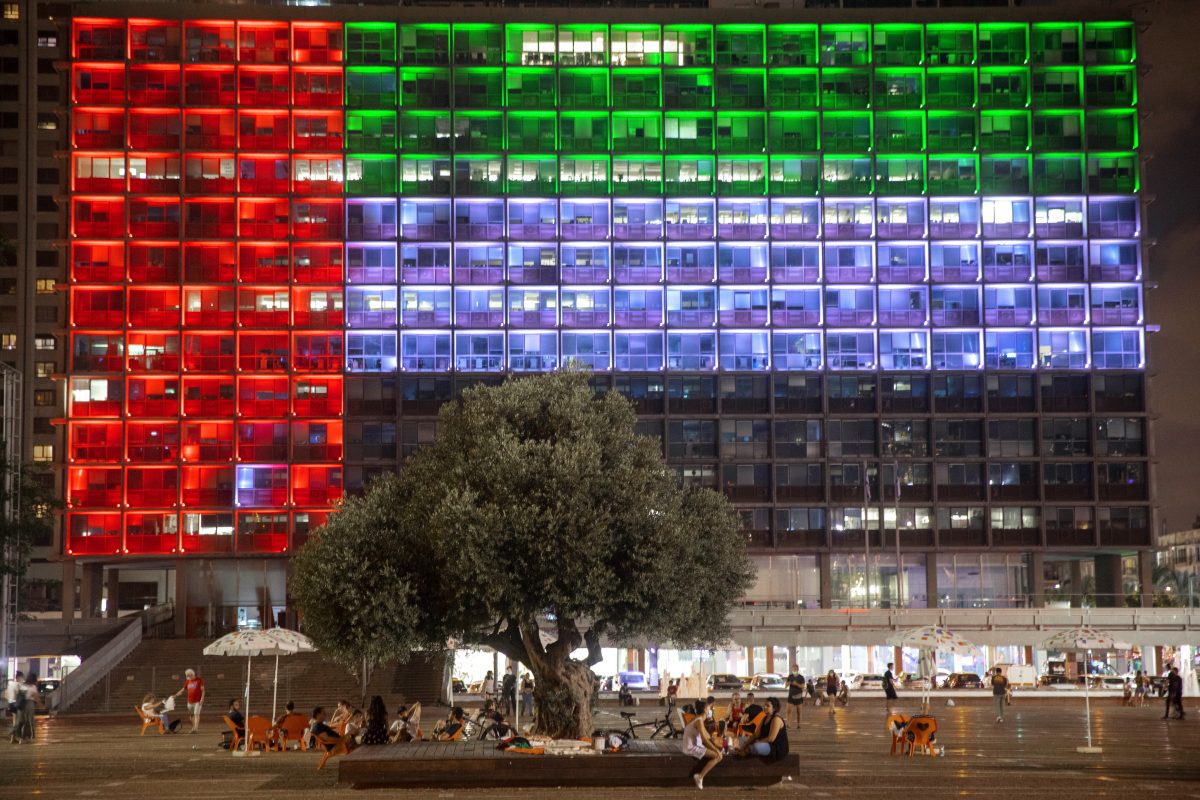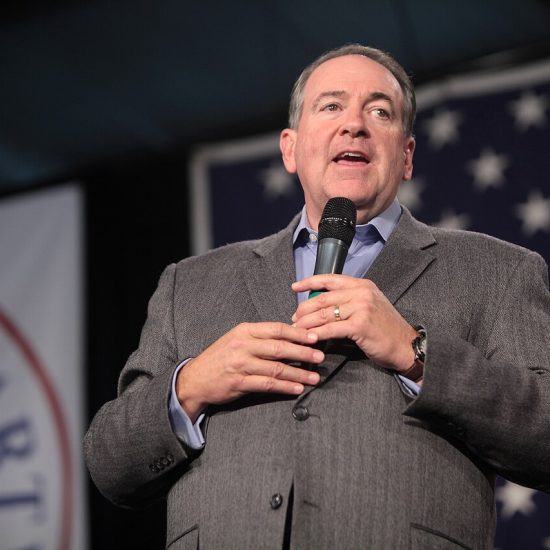
On Thursday (Aug. 13), U.S. President Donald Trump announced Israel and the United Arab Emirates agreed to diplomatic relations. As part of the deal, Israel committed to delaying any plans to annex the West Bank that it’s occupied since 1967. But while many applauded the move as a step toward peace, others criticized it as another effort that undermines Palestinian hopes for sovereignty.

Tel Aviv City Hall in Israel is lit up on Aug. 13, 2020 with the flag of the United Arab Emirates as UAE and Israel announced they would be establishing full diplomatic ties. (Oded Balilty/Associated Press)
If an agreement is signed, UAE will be the third Arab nation to formally normalize relations with Israel, following Egypt (1979) and Jordan (1994). The signing of the Israel-UAE accord is expected in September at the White House.
“HUGE breakthrough today!” Trump tweeted Thursday. “Historic Peace Agreement between our two GREAT friends, Israel and the United Arab Emirates!”
Trump’s Democratic rival, Joe Biden, also praised the agreement as “a historical step to bridge the deep divides of the Middle East.” He added it was good for Israel to not annex the West Bank, which Biden said “would be a body blow to the cause of peace.”
But not all in the region praised the new agreement, especially Palestinians who see it as not helpful to their hopes for their own nation. While Israel will not officially annex Palestinian territory for now, the nation will not provide independence nor stop its support of Israeli settlers who move into the West Bank to claim land and resources away from Palestinians.
Daoud Kuttab, a journalist and Palestinian Baptist who serves as secretary of the Jordan Evangelical Council, dismissed the new UAE-Israel agreement as “nothing but a ploy to artificially inflate the Trump administration’s foreign policy achievements ahead of the election.”
“The problem with the big hoopla around this is that it is neither a genuine breakthrough nor will it bring peace between Israelis and Arabs anytime soon,” Kuttab wrote in the Washington Post. “Though now more than ever there’s a real, urgent need to bring peace to the region, this so-called breakthrough fails to provide even a road map for the end of the decades-long Israeli occupation of Palestinian lands.”
Although Israel said as part of the agreement with UAE the nation would postpone any plans to annex Palestinian land in the West Bank, Kuttab noted that Israel already postponed its annexation plans that were to occur in July. Such annexation would have jeopardized previous peace agreements with Egypt and Jordan, as well as sparked sanctions from many European nations.
Kuttab wrote a Word&Way column in July that the proposed Israeli annexation of the West Bank that the Trump administration backed earlier this year would be “unfair and unjust.” Other Palestinians Baptists also wrote against annexation in comments to Word&Way, including Alex Awad and Munir Kakish.
“Palestinian Christians don’t support expansionism and subjugation no matter what the justification is,” Kuttab explained in his Word&Way column. “Attempts to connect the secular Israeli government’s expansionist attempts and land acquisition based on some divine right or even a crocked interpretation of biblical prophecies just doesn’t resonate with any person who believes in the simple concept of self-determination championed after the First World War by U.S. president Woodrow Wilson.”
“Peace must be based on justice and equal rights, and God has demanded of us to seek it with all our might,” Kuttub added. “Any peace that is unjust can’t and shouldn’t be endorsed by Christians who cherish and value life, whether it be Israeli or Palestinian, Jewish, Muslim, or Christian.”






